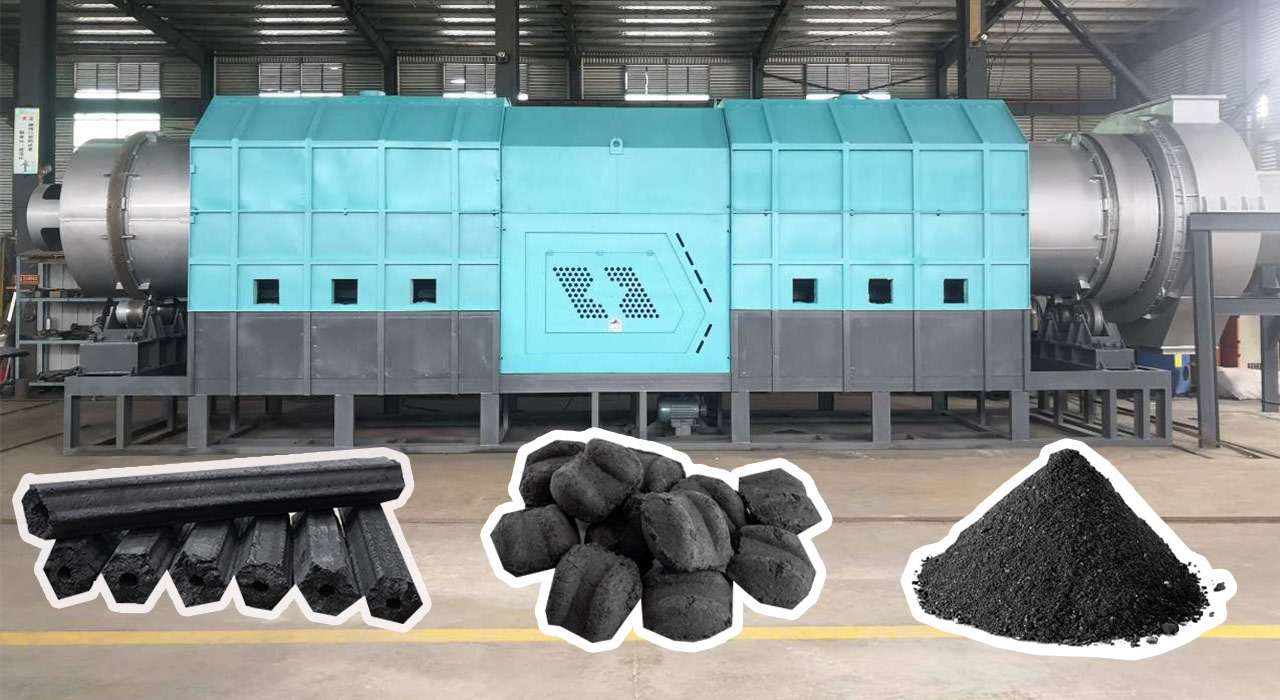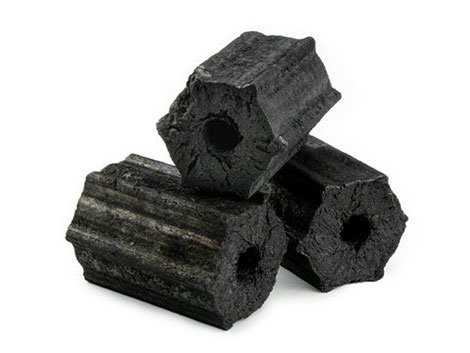Charcoal, a key commodity throughout human history, has seen a dramatic transformation in its production process thanks to technological advancements. One of the most significant innovations in this regard is the charcoal making machine. This piece of equipment has revolutionized the way charcoal is produced, making the process more efficient, environmentally friendly, and scalable. In this blog, we will delve into the intricacies of charcoal making machines, their benefits, their working principles, and their impact on various industries and the environment.
The History and Importance of Charcoal
Before we dive into the technology, it’s essential to understand the historical significance and applications of charcoal. Charcoal has been used for thousands of years for various purposes, including cooking, metalworking, and as a fuel source. Its importance is evident in many cultures around the world. Traditionally, charcoal was produced by slow pyrolysis of wood in a kiln or a pit covered with soil. This method, although effective, was labor-intensive, time-consuming, and often resulted in significant environmental damage due to deforestation and greenhouse gas emissions.
What is a Charcoal Making Machine?
A charcoal making machine, also known as a biochar production equipment, is a device designed to convert biomass waste (such as wood chips, coconut shells, rice husks, and sawdust) into charcoal through the process of pyrolysis. Modern machines are designed to be efficient, eco-friendly, and capable of processing large volumes of biomass. These machines come in various sizes and configurations, making them suitable for small-scale operations as well as large industrial applications.

Working Principle of Charcoal Making Machines
Charcoal making machines operate on the principle of pyrolysis, which is the thermal decomposition of organic material in the absence of oxygen. Here’s a step-by-step breakdown of how these machines work:
- Feeding: Biomass is fed into the machine’s reactor. The feedstock can vary widely, including agricultural waste, wood, and other organic materials.
- Drying: The biomass is initially dried to reduce its moisture content. This step is crucial because moisture can affect the efficiency of the pyrolysis process.
- Carbonization: The dried biomass undergoes carbonization in the reactor at high temperatures (usually between 400°C and 600°C) in an oxygen-free environment. During this process, volatile compounds are released, and the carbon content in the biomass is concentrated.
- Gas Collection: The volatile gases released during carbonization are collected and often used as a source of energy to power the machine, making the process more sustainable.
- Cooling and Discharging: The hot charcoal is then cooled and discharged from the machine. The cooling process is essential to prevent combustion and to ensure safe handling of the charcoal.
- Byproducts: In addition to charcoal, byproducts such as wood vinegar, tar, and syngas can be collected and utilized in various applications, adding value to the process.
Types of Charcoal Making Machines
There are several types of charcoal making machines, each designed for specific needs and scales of production:
- Batch Type: These machines process biomass in batches. They are suitable for small-scale operations and are relatively easy to operate and maintain.
- Continuous Type: Continuous biochar production equipment is designed for large-scale production. They can operate non-stop, providing a constant supply of charcoal. These machines are highly automated and efficient.
- Mobile Type: Mobile charcoal making machines are portable and can be moved to different locations. They are ideal for areas where biomass is readily available but stationary machines are impractical.
Advantages of Charcoal Making Machines
- Environmental Benefits: Modern charcoal making machines are designed to minimize environmental impact. By using biomass waste, they help reduce deforestation and greenhouse gas emissions associated with traditional charcoal production methods.
- Economic Benefits: These machines provide a sustainable way to utilize agricultural and forestry waste, creating an additional revenue stream for farmers and businesses. The byproducts can also be sold, further enhancing profitability.
- Efficiency: Charcoal making machines are highly efficient, converting a large percentage of biomass into high-quality charcoal. The energy produced during the process can often be reused, reducing operational costs.
- Quality Control: Machines ensure consistent quality of charcoal, which is crucial for industrial applications. The controlled environment in the reactor allows for the production of charcoal with specific properties tailored to different needs.
- Labor Savings: Automation in charcoal making machines reduces the need for manual labor, lowering the risk of accidents and increasing productivity.
Applications of Charcoal
Charcoal produced by these machines has a wide range of applications:
- Cooking and Heating: Charcoal is widely used as a fuel for cooking and heating, especially in developing countries.
- Metallurgy: Charcoal is used in metal smelting and refining processes due to its high carbon content and ability to reach high temperatures.
- Activated Carbon: High-quality charcoal can be further processed into activated carbon, which has applications in water purification, air filtration, and industrial processes.
- Soil Amendment: Biochar, a type of charcoal used for soil amendment, improves soil fertility, water retention, and carbon sequestration, benefiting agricultural practices.
- Art and Industry: Charcoal is used in art for drawing and in various industrial processes as a reducing agent.
Environmental Impact and Sustainability
One of the most significant benefits of modern wood charcoal making machine is their positive impact on the environment. Traditional charcoal production methods contribute to deforestation and release significant amounts of CO2 and other greenhouse gases. In contrast, using biomass waste as feedstock for charcoal making machines helps mitigate these issues. Moreover, the process of pyrolysis itself can be made almost carbon-neutral if the byproduct gases are captured and used efficiently.
Biochar, a byproduct of charcoal production, has garnered attention for its potential to enhance soil health and sequester carbon. When applied to soil, biochar can improve water retention, nutrient availability, and microbial activity, leading to better crop yields. Additionally, it can lock carbon in the soil for centuries, acting as a carbon sink and helping to combat climate change.
Challenges and Future Prospects
Despite the numerous advantages, there are challenges associated with the adoption of charcoal making machines. The initial investment cost can be high, especially for continuous and industrial-scale machines. Additionally, there may be logistical issues related to the collection and transportation of biomass feedstock.
However, the future prospects for charcoal making machines are promising. Advances in technology are likely to reduce costs and improve efficiency further. Government policies and incentives aimed at promoting sustainable practices can also boost the adoption of these machines. Furthermore, as awareness of environmental issues grows, there is likely to be increased demand for sustainable and eco-friendly products like machine-made charcoal.
Conclusion
Charcoal making machines represent a significant step forward in the sustainable production of charcoal. By utilizing biomass waste, these machines offer a way to produce high-quality charcoal while minimizing environmental impact. Their efficiency, economic benefits, and versatility make them a valuable tool for industries and communities alike. As technology continues to advance and awareness of environmental sustainability grows, charcoal making machines are poised to play an increasingly important role in our efforts to create a more sustainable and resilient future. More related information on Beston Group Co., Ltd. is here.
